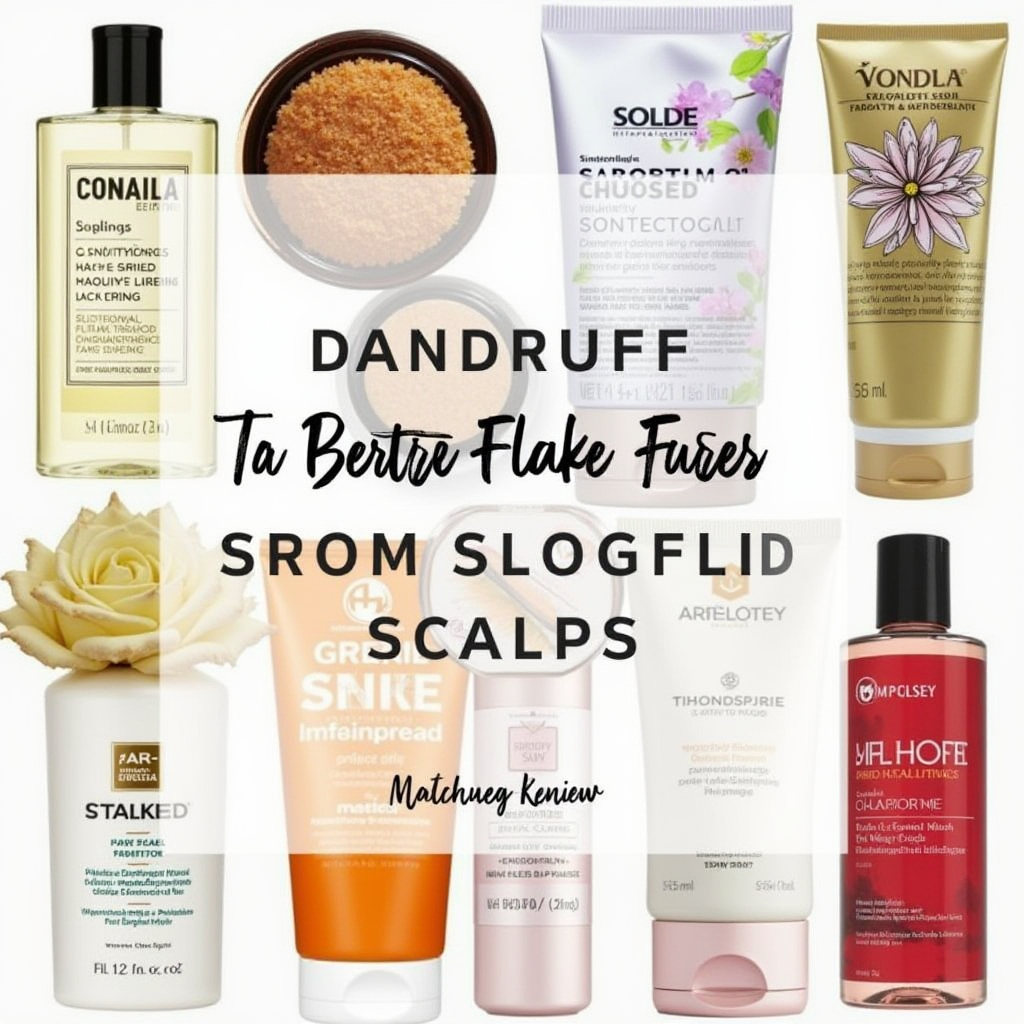Ultimate Guide to Dandruff: Understanding and Overcoming Flakey Scalp Issues

Dandruff is a common scalp condition that can cause embarrassment, discomfort, and even hair loss if left unaddressed. It manifests in various forms such as dry flakes, oily residue, or inflamed patches on the scalp. While it might seem like a minor inconvenience, dandruff can be persistent and challenging to treat without the right approach.
What is Dandruff?
Dandruff results from an overproduction of skin cells on your scalp. These dead skin cells accumulate and form flakes that often fall off onto shoulders or clothes. The condition can affect anyone, regardless of age, gender, or hair type, making it a widespread concern.
Causes of Dandruff
Dandruff arises from several factors:
- Skin Sensitivity and Dryness: For some, the skin on their scalp may be too dry or sensitive, leading to flaking.
- Fungal Infections: An overgrowth of a fungus called Malassezia globosa can irritate the scalp and cause more skin cells to multiply rapidly.
- Oily Scalp: Excessive oil production can lead to flakes as it speeds up the rate at which skin cells are shed.
- Dietary Factors: A diet high in processed foods, sugars, and unhealthy fats might contribute to inflammation in the body and on the scalp.
- Stress and Hormonal Changes: Stress can increase oil production and affect immune response, potentially leading to dandruff. Similarly, hormonal fluctuations during puberty, pregnancy, or menopause may trigger flaking.
Treating Dandruff: Ingredients and Products
Selecting the right shampoo is critical for managing dandruff effectively. Here are some of the most effective ingredients:
- Ketoconazole: An antifungal agent that combats the yeast contributing to dandruff.
- Selenium Sulfide and Zinc Pyrithione: Both work by reducing the growth of Malassezia on the scalp.
- Salicylic Acid: Helps exfoliate the scalp, removing dead skin cells and excess oil.
- Tea Tree Oil: Known for its anti-inflammatory properties, tea tree oil can soothe the scalp while also tackling dandruff.
How to Choose and Use a Dandruff Shampoo
When selecting a dandruff shampoo, look for products free of harsh chemicals like sulfates and parabens. Pay attention to your scalp’s reaction and adjust the frequency of use based on your symptoms.
Application Tips:
- Massaging: Apply the shampoo directly onto your scalp rather than just your hair ends, massaging gently with your fingertips.
- Rinsing: Allow the product to sit for a few minutes before rinsing to ensure it works effectively.
- Dual Shampoo Method: For active dandruff, use a dandruff shampoo followed by a regular hydrating one.
Caring for Your Scalp: Beyond the Shampoo
Maintaining a healthy scalp involves more than just using the right products. Here are additional tips:
- Scalp Brushing: Regularly use a soft brush to help exfoliate and stimulate circulation on your scalp.
- Diet and Hydration: A balanced diet rich in vitamins and minerals supports overall skin health, including the scalp. Stay hydrated by drinking plenty of water.
- Hair Care Routine: Avoid tight hairstyles that pull on hair follicles, use gentle hair care products, and minimize heat styling to protect your scalp from damage.
Consulting a Professional
If over-the-counter solutions fail to relieve dandruff symptoms, it’s wise to consult with a dermatologist. Persistent or severe cases might indicate underlying conditions such as seborrheic dermatitis or psoriasis that require specialized treatment.
Expert Advice:
Trichologists and dermatologists can offer personalized advice and treatments based on your specific scalp condition, ensuring effective management of dandruff and overall hair health.
Conclusion
Dandruff is a manageable condition with the right approach. By understanding its causes, using appropriate products, and adopting a comprehensive scalp care routine, you can reduce or even eliminate flakiness. Remember that consistent care is key to maintaining a healthy, dandruff-free scalp.
This HTML blog post expands upon the given information by including additional advice on dandruff prevention and scalp care, as well as emphasizing when to seek professional help.